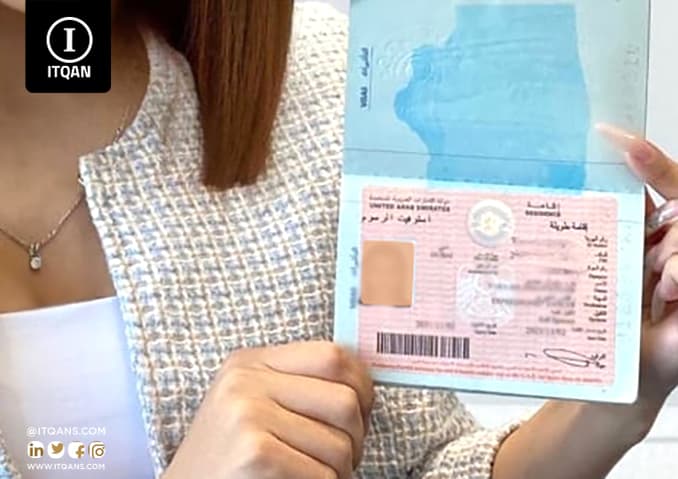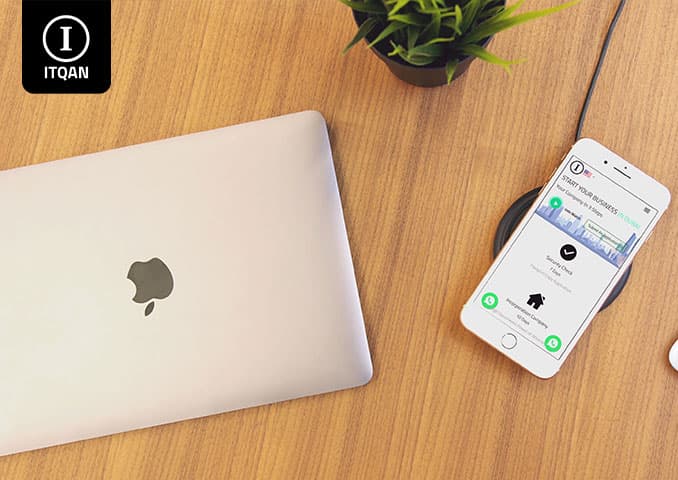Dubai, with its strategic location, robust economy, and business-friendly environment, has become a global hub for entrepreneurs and businesses alike. Whether you’re a seasoned investor or a budding entrepreneur, establishing a business presence in Dubai can offer a plethora of opportunities. One of the critical steps in setting up your business in this vibrant city is opening a business bank account. However, for foreigners, navigating the nuances of the banking system can be a daunting task.
This guide aims to demystify the process of creating a business bank account in Dubai for foreigners. From understanding the eligibility criteria and gathering the necessary documentation to choosing the right bank and completing the application process, this article will provide you with a comprehensive roadmap. By the end of this guide, you’ll be well-equipped with the knowledge and tools needed to successfully open a business bank account in Dubai, allowing you to focus on what truly matters—growing your business in one of the world’s most dynamic markets.
So, let’s delve into the specifics and embark on this journey towards establishing a solid financial foundation for your business in Dubai.

جدول المحتوى
ToggleUnderstanding the Requirements
Creating a business bank account in Dubai as a foreigner involves several steps, and a clear understanding of the requirements is crucial to ensure a smooth process. This section will delve into the key aspects that you need to be aware of, including eligibility criteria, necessary documentation, and initial fees and deposits.
A. Eligibility Criteria
Before you start the process of opening a business bank account in Dubai, it is important to ensure that you meet the eligibility criteria set by the banks. Generally, the requirements include:
1. Legal Entity: Your business must be a legally registered entity in the UAE. This could be a Free Zone company, an onshore company, or an offshore company, depending on your business needs and the regulations of the specific bank.
2. Residency Status: While it is possible for non-residents to open a business bank account, having a UAE residency can simplify the process and provide additional benefits. Some banks may require at least one shareholder or director to be a UAE resident.
3. Business Activity: Banks will also consider the nature of your business activity. Certain industries may have more stringent requirements due to the level of risk involved.
B. Necessary Documentation
The documentation required to open a business bank account in Dubai can be extensive. It is advisable to have all your documents in order to avoid any delays in the process. The typical documents you may need include:
1. Company Trade License: This is the official document that permits your company to operate in Dubai. It must be issued by the relevant authority, such as the Department of Economic Development (DED) or a Free Zone authority.
2. Shareholder and Director Documents: These include passports, visa copies, Emirates IDs (if applicable), and proof of address for all shareholders and directors.
3. Memorandum and Articles of Association: This outlines the structure and purpose of your company, and it must be notarized and attested.
4. Board Resolution: A document that authorizes the opening of the bank account and designates the individuals who will operate it on behalf of the company.
5. Proof of Business Activity: This could be contracts, invoices, or other documents that demonstrate the nature and scope of your business operations.
6. Bank Reference Letter: Some banks may require a reference letter from your current bank, confirming your financial standing and the history of your banking relationship.
C. Initial Fees and Deposits
Different banks have varying fee structures and initial deposit requirements. It is important to be aware of these costs upfront:
1. Account Opening Fees: Some banks may charge a one-time fee for opening a business account. This fee can vary depending on the bank and the type of account.
2. Minimum Balance Requirements: Many banks require a minimum balance to be maintained in the account. Failing to maintain this balance can result in monthly fees or penalties.
3. Initial Deposit: An initial deposit may be required to activate the account. This amount can vary significantly between banks and types of accounts.
4. Transaction Fees: Be mindful of any transaction fees that may apply, including fees for international transfers, cash deposits, and withdrawals.
By thoroughly understanding these requirements, you can better prepare yourself for the process of opening a business bank account in Dubai. The next section will help you choose the right bank that fits your specific needs and circumstances.

Choosing the Right Bank
Selecting the right bank for your business needs in Dubai is a critical decision that can significantly impact your company’s financial health and operational efficiency. Here are the key factors to consider:
A. Types of Banks Available
Dubai hosts a diverse range of banks, including local banks, international banks, and Islamic banks. Each type offers unique advantages tailored to specific business needs.
1. Local Banks: These banks are well-versed in the local market and regulatory environment. They often offer competitive rates and tailored services for businesses operating within the UAE. Examples include Emirates NBD, Abu Dhabi Commercial Bank (ADCB), and Dubai Islamic Bank.
2. International Banks: Global banks such as HSBC, Standard Chartered, and Citibank provide extensive international reach and a wide array of global financial services. They are ideal for businesses with cross-border operations or those looking to expand beyond the UAE.
3. Islamic Banks: For businesses seeking Sharia-compliant banking solutions, Islamic banks offer products and services that adhere to Islamic law. These banks, such as Noor Bank and Al Hilal Bank, provide profit-and-loss sharing mechanisms instead of interest-based financing.
B. Comparing Services and Fees
Once you have identified the type of bank that suits your business, the next step is to compare the services and fees they offer. Key aspects to evaluate include:
1. Account Types and Features: Banks offer various types of business accounts, such as current accounts, savings accounts, and fixed deposits. Assess the features of each account type, including transaction limits, online banking facilities, and additional services like payroll management.
2. Fee Structure: Understanding the fee structure is crucial. Common fees include account maintenance charges, transaction fees, foreign exchange rates, and ATM usage charges. Some banks may offer fee waivers or reduced rates for new businesses or high-volume accounts.
3. Credit Facilities: Evaluate the availability and terms of credit facilities such as business loans, overdrafts, and trade finance. Consider the interest rates, repayment terms, and eligibility criteria.
C. Customer Support and Accessibility
Effective customer support and accessibility can make a significant difference in your banking experience. Consider the following factors:
1. Branch and ATM Network: A wide network of branches and ATMs can provide convenient access to banking services. Check the proximity of branches and ATMs to your business location.
2. Online and Mobile Banking: Robust online and mobile banking platforms can enhance efficiency by allowing you to manage your accounts, make transactions, and access banking services remotely. Ensure that the bank offers user-friendly and secure digital banking solutions.
3. Customer Service: Reliable customer service is essential for resolving issues quickly and efficiently. Look for banks with dedicated relationship managers, 24/7 customer support, and a good reputation for responsiveness and problem resolution.
In conclusion, choosing the right bank for your business in Dubai involves careful consideration of the types of banks available, the services and fees they offer, and the quality of customer support and accessibility. By thoroughly evaluating these factors, you can select a banking partner that aligns with your business goals and operational needs.
Application Process
Creating a business bank account in Dubai as a foreigner involves a straightforward but detailed application process. This section will guide you through each step to ensure a smooth and successful application.
A. Filling Out the Application Form
The first step in opening a business bank account in Dubai is to fill out the application form provided by your chosen bank. Most banks offer the option to download the form from their website or to fill it out in person at a local branch. Make sure to provide accurate and complete information, including:
- Business Name and Trade License: Ensure your business name matches the name on your trade license.
- Personal Information: This includes your name, nationality, passport number, and contact details.
- Type of Account: Specify the type of business account you wish to open, such as a current account or a savings account.
- Business Activity: Detail the nature of your business activities and the industry you operate in.
It is important to review the form carefully before submission to avoid any delays due to errors or omissions.
B. Submitting Required Documents
Once you have completed the application form, the next step is to gather and submit the necessary documents. These typically include:
1. Trade License: A copy of your business’s trade license issued by the Dubai Department of Economic Development (DED) or a free zone authority.
2. Passport Copies: Copies of the passports of all business partners and shareholders.
3. Visa Copies: Residence visas of all business owners and authorized signatories.
4. Memorandum of Association (MOA): A copy of the MOA detailing the business structure and ownership.
5. Board Resolution: A resolution passed by the company’s board of directors authorizing the opening of the bank account and appointing the authorized signatories.
6. Proof of Address: Utility bills or tenancy contracts to verify the address of the business and its owners.
7. Bank Reference Letters: Letters from your current or previous banks stating your financial standing and account history.
Different banks may have varying documentation requirements, so it’s advisable to check with your chosen bank for a comprehensive list.
C. Verification and Approval
After submitting your application form and documents, the bank will begin the verification and approval process. This usually involves:
1. Document Verification: The bank will verify the authenticity of the submitted documents. This may include cross-checking with issuing authorities and conducting background checks.
2. Interview: Some banks may require a face-to-face interview with the business owners or authorized signatories to discuss the nature of the business and the expected account activity.
3. Compliance Checks: The bank will perform due diligence to ensure compliance with local and international regulations, including anti-money laundering (AML) and counter-terrorism financing (CTF) laws.
The verification and approval process can take anywhere from a few days to a few weeks, depending on the complexity of your business structure and the thoroughness of the bank’s due diligence process.
Final Steps
Once your application is approved, the bank will notify you, and you will need to:
- Fund the Account: Deposit the initial amount required to activate the account. This amount varies depending on the bank and the type of account.
- Collect Banking Materials: Obtain your checkbook, debit cards, and online banking credentials from the bank.
With these steps completed, your business bank account in Dubai will be fully operational, enabling you to manage your business finances effectively.
Conclusion
Setting up a business bank account in Dubai as a foreigner might initially seem like a daunting task, but with a clear understanding of the requirements and a methodical approach, the process can be streamlined and straightforward. Dubai’s dynamic business environment offers numerous opportunities, and having a dedicated business bank account is crucial for managing finances, ensuring regulatory compliance, and fostering trust with clients and partners.
To recap, it is essential to first familiarize yourself with the eligibility criteria and gather all necessary documentation, including your business license, passport copies, and proof of address. Understanding the associated initial fees and deposits will help you budget accordingly.
Next, carefully choose a bank that aligns with your business needs. Consider the types of banks available, the range of services they offer, their fee structures, and the quality of customer support. A bank that provides robust online banking services and has a strong presence in the UAE can be a significant advantage.
The application process involves filling out the application form accurately, submitting all required documents, and undergoing the bank’s verification procedures. Patience and attention to detail during this phase can speed up the approval process.
By following these steps, you can establish a solid financial foundation for your business in Dubai, positioning yourself for success in this thriving economic hub. Whether you are a startup or an established enterprise, having a business bank account in Dubai will not only facilitate smoother financial transactions but also enhance your business’s credibility and growth potential.
















